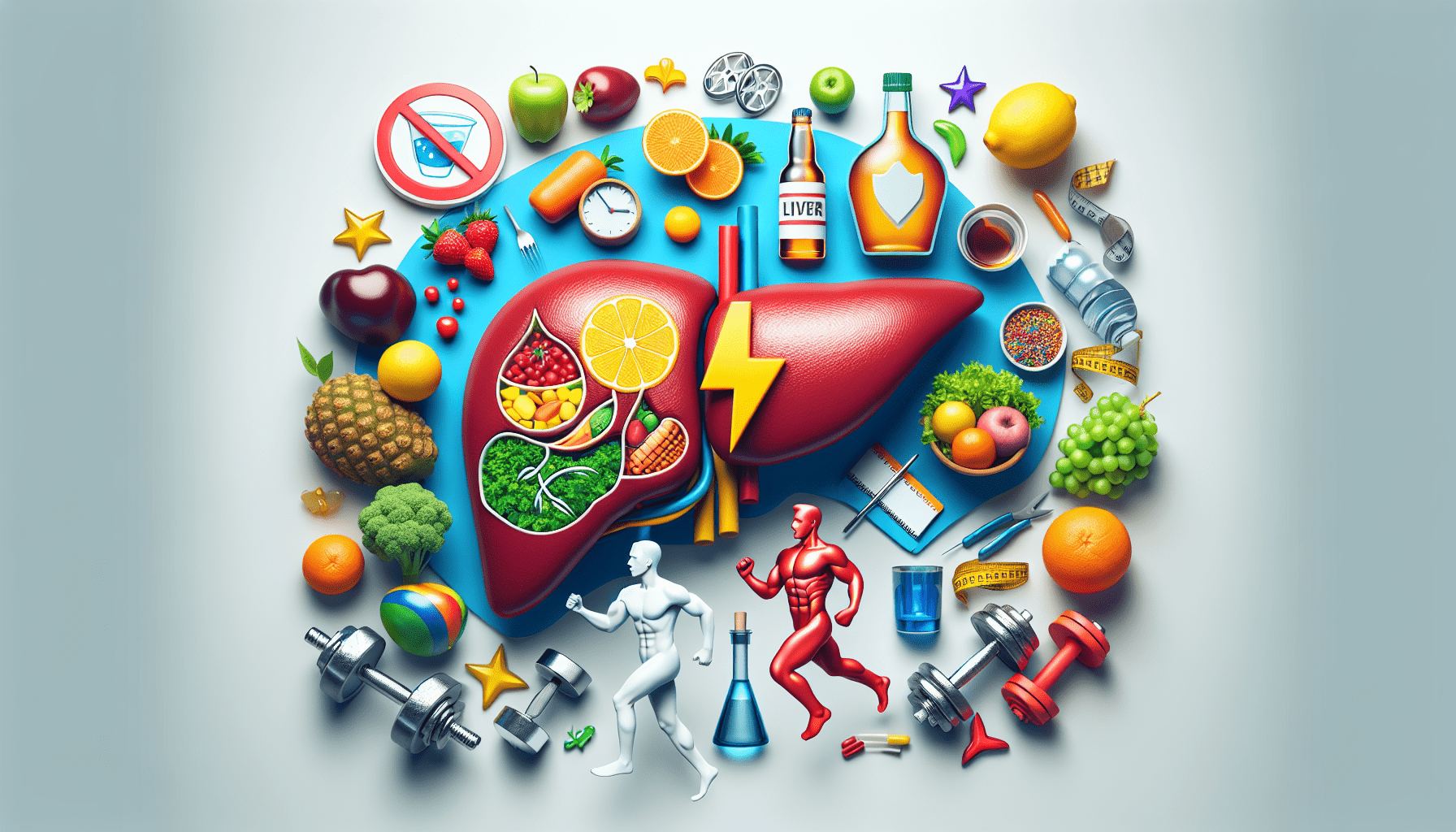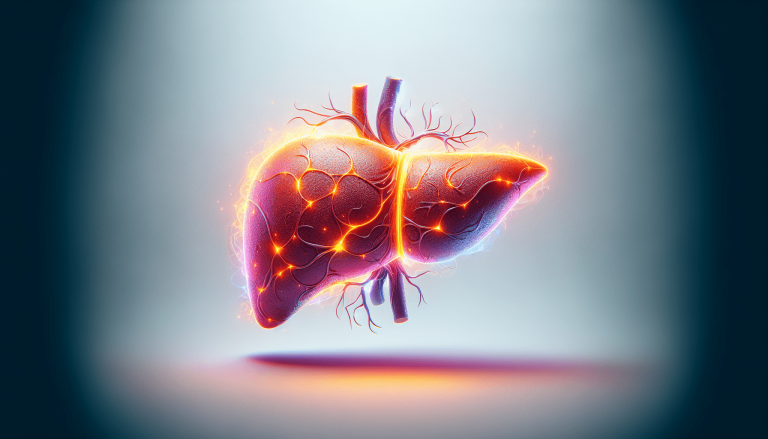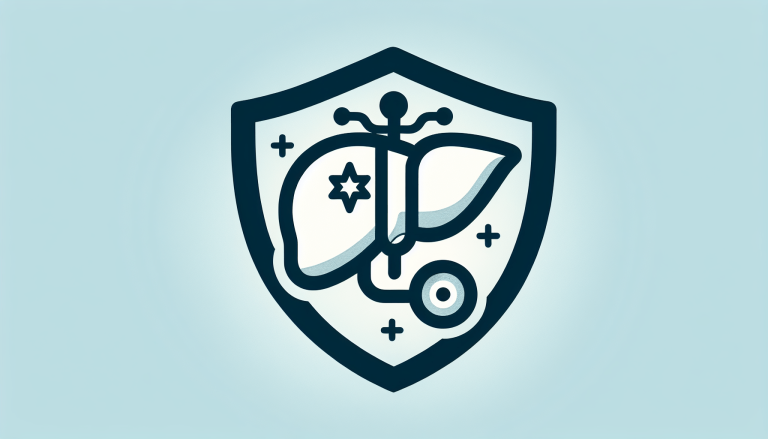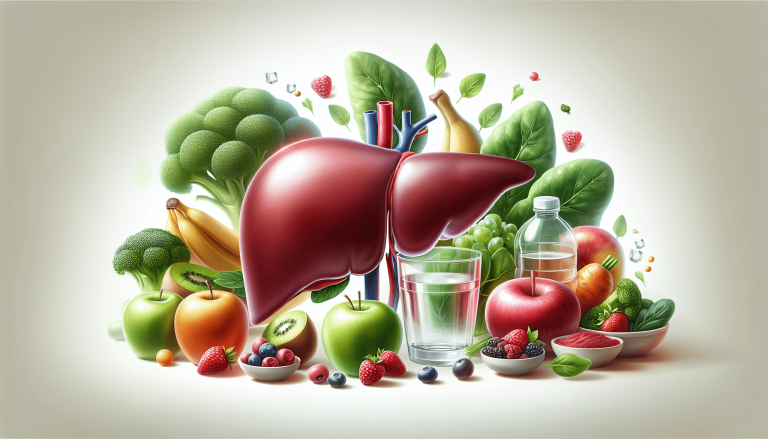How Can I Make My Liver Healthy Again?
If you’ve found yourself pondering the ways to restore your liver’s vitality, you’re not alone. Our liver, an impressively hardworking organ, plays a vital role in keeping our bodies healthy and functioning optimally. But what can you do if your liver needs a boost? In this article, we’ll explore some key strategies to help you make your liver healthy again, equipping you with the knowledge and tools to embark on a journey towards improved liver function and overall well-being.
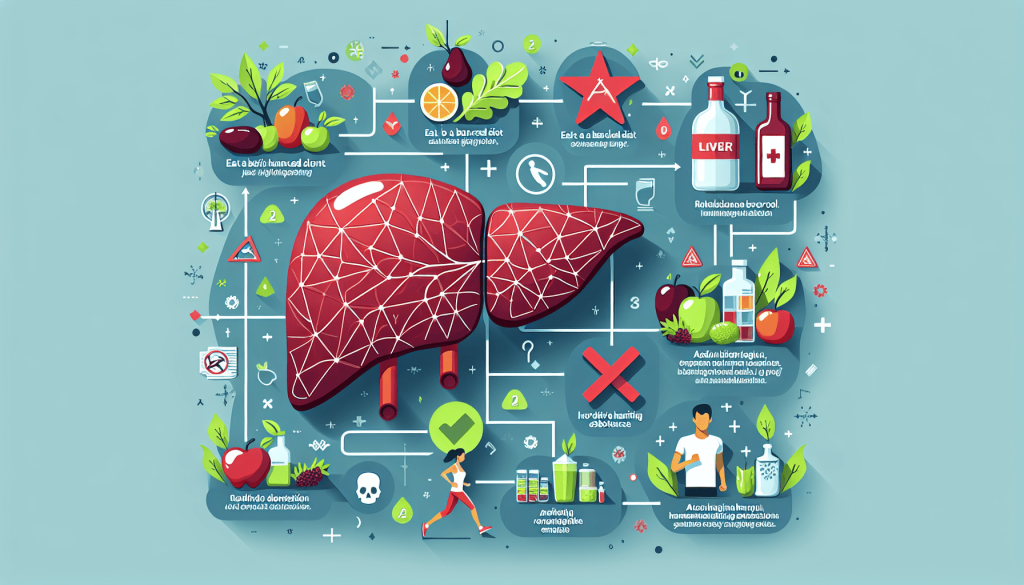
Maintain a Healthy Weight
Calculate your body mass index (BMI)
Maintaining a healthy weight is crucial for the overall well-being of your liver. One way to determine if you are at a healthy weight is by calculating your body mass index (BMI). This calculation takes into account your weight and height, providing you with a numerical value that indicates whether you are underweight, normal weight, overweight, or obese. By knowing your BMI, you can better understand if you need to make any adjustments to achieve a healthy weight.
Create a weight loss plan
If you find that your BMI suggests you are overweight or obese, it is important to create a weight loss plan tailored to your needs. This plan should include realistic goals and strategies to help you shed excess pounds gradually. Remember, quick and drastic weight loss can actually be harmful to your liver. Instead, focus on making sustainable lifestyle changes such as incorporating healthier food choices and increasing physical activity.
Monitor your calorie intake
To maintain a healthy weight or achieve weight loss, it is essential to monitor your calorie intake. This means being mindful of the number of calories you consume each day and ensuring that it aligns with your goals. By tracking your calorie intake, you can become more aware of your eating habits and make adjustments as needed. It is also important to focus on the quality of calories consumed, opting for nutrient-dense foods that provide essential vitamins and minerals.
Engage in regular exercise
Physical activity is not only beneficial for maintaining a healthy weight, but it also promotes liver health. Engaging in regular exercise helps to improve blood flow, stimulate the liver, and promote the overall well-being of your body. Aim for at least 150 minutes of moderate-intensity aerobic exercise or 75 minutes of vigorous-intensity aerobic exercise per week. Additionally, incorporating strength training exercises a few times a week can help build muscle and further support your weight management journey.
Consider professional guidance
If you are struggling to maintain a healthy weight or create a weight loss plan on your own, consider seeking professional guidance. Registered dietitians and nutritionists can provide personalized recommendations based on your specific needs and goals. They can help you navigate dietary challenges, suggest realistic weight loss strategies, and offer ongoing support throughout your journey to a healthier weight. Remember, it’s important to consult with a healthcare professional before starting any weight loss program, especially if you have any underlying health conditions or concerns.
Eat a Balanced Diet
Include a variety of fruits and vegetables
When it comes to promoting liver health, a balanced diet that includes a variety of fruits and vegetables is key. These colorful and nutrient-rich foods provide essential vitamins, minerals, and antioxidants that help the liver function optimally. Some fruits and vegetables, such as berries, grapes, citrus fruits, leafy greens, and cruciferous vegetables, are particularly beneficial for liver health. Aim to include a variety of fruits and vegetables in your daily meals and snacks to maximize their health benefits.

Consume lean proteins
Including lean proteins in your diet is essential for maintaining a healthy liver. Proteins help repair liver cells, support enzyme production, and aid in the detoxification process. Opt for lean sources of protein such as skinless poultry, fish, tofu, legumes, and low-fat dairy products. It’s important to balance your protein intake with other food groups to ensure a well-rounded and nutritious diet.
Choose whole grains
Whole grains are an excellent source of fiber and other essential nutrients that support liver health. Foods such as whole wheat bread, brown rice, quinoa, oats, and barley provide a steady release of energy and help regulate blood sugar levels. Including whole grains in your diet can also reduce the risk of developing non-alcoholic fatty liver disease. Aim to make at least half of your grain choices whole grains to reap their benefits.
Limit unhealthy fats and sugars
Excessive consumption of unhealthy fats and sugars can contribute to liver damage and weight gain. To promote a healthy liver, limit your intake of saturated and trans fats, as well as refined sugars. Instead, focus on incorporating healthier fats such as avocados, nuts, and olive oil in moderation. Choose natural sweeteners like honey or maple syrup instead of refined sugar when needed. By reducing your intake of unhealthy fats and sugars, you’ll be supporting your liver’s function and overall well-being.
Reduce sodium intake
High sodium intake can lead to water retention, which puts strain on the liver. To maintain and promote a healthy liver, it’s important to reduce your sodium intake. Limit your consumption of processed foods, fast food, and salty snacks, which are often high in sodium. Instead, flavor your meals with herbs, spices, and other flavorful ingredients to reduce the need for excessive salt. Be mindful of hidden sodium in condiments and choose low-sodium options whenever possible.
Stay hydrated
Proper hydration is essential for liver health and overall well-being. Drinking enough water helps to flush toxins out of your body and supports proper liver function. Aim to drink at least eight glasses of water per day, and more if you engage in physical activity or live in a hot climate. Herbal teas and detox water infused with fruits and herbs can also contribute to your hydration goals. Additionally, monitoring the color of your urine can serve as an indicator of your hydration level. Aim for a pale yellow or straw-colored urine to ensure you are adequately hydrated throughout the day.
Limit Alcohol Consumption
Know the recommended guidelines
Excessive alcohol consumption is one of the leading causes of liver damage. It’s important to be aware of the recommended guidelines for alcohol consumption to protect your liver. The Centers for Disease Control and Prevention (CDC) recommends that men should limit their alcohol intake to two standard drinks per day and women to one standard drink per day. Understanding and following these guidelines can help prevent alcohol-related liver diseases such as alcoholic hepatitis, cirrhosis, and liver cancer.
Set personal alcohol limits
In addition to the recommended guidelines, it’s important to set personal alcohol limits that are tailored to your own health and well-being. Some individuals may need to further reduce or completely eliminate their alcohol consumption due to preexisting liver conditions or other health concerns. Assess your personal relationship with alcohol and make a commitment to stick to your set limits. Remember, it’s always better to err on the side of caution when it comes to protecting your liver health.
Take days off from drinking
Taking regular days off from drinking alcohol is an important part of maintaining a healthy liver. This practice allows your liver to rest and recover from the effects of alcohol. Designate specific days of the week as alcohol-free days and commit to sticking to them. This habit will not only benefit your liver, but it can also improve your overall health and well-being.
Seek support if needed
If you find it challenging to limit or eliminate alcohol from your life, it’s important to seek support. There are various support groups and resources available, such as Alcoholics Anonymous (AA), that can provide the necessary guidance and encouragement to help you on your journey towards a healthier lifestyle. Remember, it takes strength to ask for help, and reaching out for support is a positive step towards improving your liver health and overall well-being.
Avoid binge drinking
Binge drinking, which is defined as consuming a large amount of alcohol in a short period of time, can be particularly harmful to your liver. This pattern of drinking puts immense strain on the liver and can lead to acute alcohol-related liver disease. To protect your liver, it’s crucial to avoid binge drinking and practice moderation when consuming alcohol. Pace yourself, alternate alcoholic beverages with non-alcoholic options, and be mindful of your overall alcohol consumption.
Quit Smoking
Understand the harmful effects on the liver
Smoking not only harms your lungs and cardiovascular system, but it can also have detrimental effects on your liver. Tobacco smoke contains harmful chemicals that can impair liver function and increase the risk of liver diseases such as liver cancer. Understanding the harmful effects of smoking on your liver can serve as motivation to quit and improve your liver health.
Seek assistance to quit smoking
Quitting smoking is one of the best things you can do for your liver and overall health. If you’re a smoker, it’s important to seek assistance to quit. There are various resources available, such as nicotine replacement therapies, medications, and counseling programs, that can significantly increase your chances of successfully quitting smoking. Talk to your healthcare provider or reach out to smoking cessation programs in your area to find the support that best suits your needs.
Join support groups
Joining support groups specifically tailored for individuals trying to quit smoking can provide invaluable support and encouragement during your journey. These groups provide a safe and non-judgmental environment where you can share your experiences, learn coping strategies, and receive advice from others who are going through similar challenges. Having a support system can greatly increase your chances of successfully quitting smoking and improving your liver health.
Find healthy alternatives
Quitting smoking can be challenging, as it often becomes a habit deeply ingrained within your daily routine. Finding healthy alternatives to replace smoking can help you successfully quit and improve your liver health. Consider engaging in activities that keep your hands and mind occupied, such as hobbies, exercise, or meditation. Replace the act of smoking with healthier habits, and over time, the urge to smoke will diminish.
Stay committed to the process
Quitting smoking is a journey that requires commitment and perseverance. It’s important to stay focused on your goal of improving your liver health and understand that quitting might not happen overnight. There may be times when you experience cravings or setbacks, but it’s crucial to stay committed to the process. Remind yourself of the numerous benefits of quitting smoking, such as reducing your risk of liver diseases and improving your overall well-being.
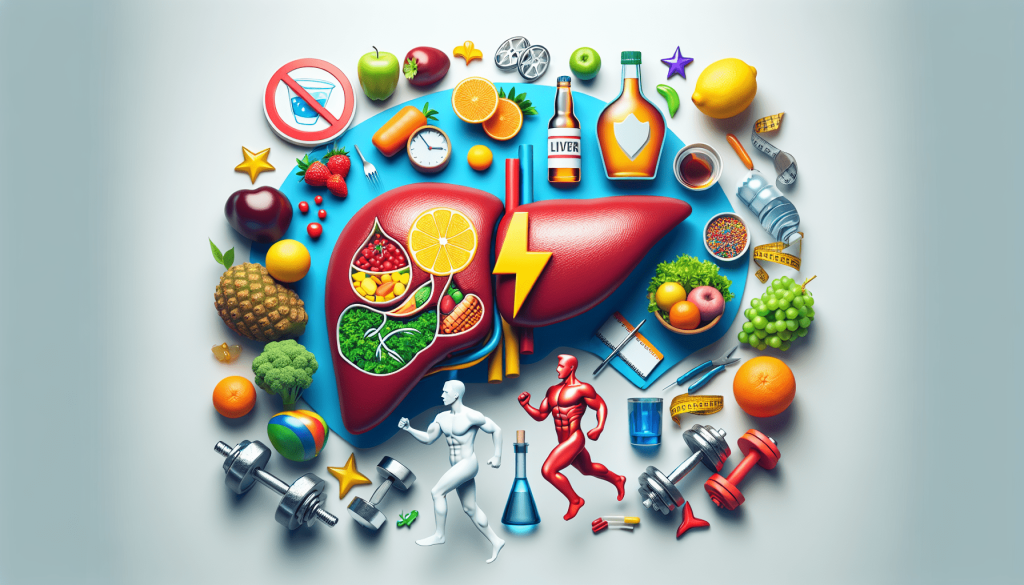
Practice Safe Medication Use
Follow instructions and dosage
When taking medications, it’s important to follow the instructions provided by your healthcare provider and adhere to the recommended dosage. Taking medications in excess or not as prescribed can have detrimental effects on your liver. Some medications can cause liver damage when taken inappropriately or in combination with other substances. Always read the labels, ask your pharmacist or healthcare professional for clarification, and never exceed the recommended dosage.
Be cautious with herbal remedies
While herbal remedies are often perceived as natural and safe, it’s important to exercise caution when using them. Some herbal remedies can interact with medications or have adverse effects on the liver. It’s advisable to seek guidance from a healthcare provider or pharmacist before incorporating herbal remedies into your routine. They can provide you with information on potential interactions and advise you on the safest and most effective remedies for your liver health.
Inform healthcare providers about liver health
When visiting healthcare providers, it is essential to inform them about your liver health status. This information allows them to make informed decisions regarding the medications they prescribe. Certain medications may have a higher risk of liver damage, so it’s important for your healthcare provider to consider alternative options or adjust dosages accordingly. Open and honest communication with your healthcare provider is key to ensuring safe medication use and protecting your liver.
Avoid mixing medications and alcohol
Mixing medications and alcohol can have serious consequences for your liver health. Both substances can independently cause liver damage, so when combined, they pose an even greater risk. It’s important to avoid alcohol consumption when taking medications, especially those known to have potential interactions with alcohol. Always read the labels or consult with your healthcare provider or pharmacist to ensure the safe use of medications.
Consult a pharmacist if unsure
If you have any doubts or concerns about the medications you are taking, it’s advisable to consult with a pharmacist. Pharmacists are knowledgeable about potential drug interactions and can provide valuable information regarding the safe use of medications. They can review your medication list, discuss potential side effects, and provide guidance on how to optimize your medication regimen while protecting your liver health.
Manage Stress Levels
Discover stress management techniques
Chronic stress can have detrimental effects on your liver health. It’s important to discover and implement stress management techniques that work for you. These techniques can help reduce your overall stress levels and promote a healthier liver. Experiment with different stress management techniques such as deep breathing exercises, meditation, yoga, journaling, or engaging in hobbies that bring you joy. Find what works best for you and incorporate it into your daily routine.
Engage in relaxation activities
Engaging in relaxation activities can significantly reduce stress levels and promote liver health. Activities such as taking a warm bath, practicing mindfulness, listening to calming music, or spending time in nature can help relax both your body and mind. Make time for relaxation activities and prioritize self-care as an essential part of maintaining a healthy liver.

Maintain a healthy work-life balance
Achieving a healthy work-life balance is crucial for managing stress levels and protecting your liver health. Overworking and excessive stress from work can increase the risk of liver diseases. Set boundaries and create a schedule that allows for adequate rest, leisure, and quality time with loved ones. Remember, a healthy work-life balance is essential for your overall well-being, including the health of your liver.
Seek therapy or counseling if necessary
If stress is significantly impacting your daily life and overall well-being, it may be beneficial to seek therapy or counseling. Sometimes, professional help is necessary to address underlying causes of stress and learn effective coping mechanisms. A therapist or counselor can provide guidance, support, and tools to help you manage stress, improve your mental health, and ultimately protect your liver health.
Prioritize self-care
Self-care plays a vital role in managing stress levels and promoting liver health. Make self-care a priority by engaging in activities that nourish your body and mind. This can include getting sufficient sleep, eating nutritious meals, engaging in regular physical activity, practicing relaxation techniques, and spending time doing things you enjoy. Remember, taking care of yourself is not selfish; it is a necessary step towards maintaining optimal liver health.
Exercise Regularly
Choose exercises that suit your fitness level
Regular exercise is essential for promoting liver health, but it’s important to choose exercises that suit your current fitness level. If you are new to exercise or have any health concerns, consult with your healthcare provider before starting any exercise program. Start with activities that are comfortable for you, such as walking, swimming, or cycling, and gradually increase the intensity and duration as your fitness level improves. Listen to your body and stay within your comfort zone while gradually challenging yourself.
Engage in both cardiovascular and strength training
A well-rounded exercise program for liver health should include both cardiovascular exercises and strength training. Cardiovascular exercises, such as brisk walking, jogging, or dancing, help improve cardiovascular health, increase blood flow, and promote overall well-being. Strength training exercises, such as weightlifting or resistance band exercises, help build muscle mass and support optimal liver function. Aim for a combination of both types of exercises for maximum liver health benefits.
Schedule regular workout sessions
Consistency is key when it comes to exercise and liver health. Schedule regular workout sessions into your weekly routine to ensure you stay committed to your fitness goals. Set aside specific days and times dedicated solely to exercise, making it a non-negotiable part of your schedule. Consistency with exercise helps establish a healthy habit and provides ongoing benefits for your liver and overall well-being.
Find enjoyable physical activities
Exercise doesn’t have to be boring or feel like a chore. Find physical activities that you genuinely enjoy to make your workout sessions more enjoyable and sustainable. Whether it’s dancing, hiking, playing a sport, or taking a group fitness class, incorporating activities you love into your exercise routine can increase motivation and adherence. Look for opportunities to be active throughout your day, such as walking instead of driving or taking the stairs instead of the elevator.
Warm up before exercising
Before starting any physical activity, it’s important to warm up your body to prepare it for the exercise ahead. A warm-up routine helps increase blood flow, prevent injuries, and optimize your performance. Start with gentle stretches, followed by a few minutes of light aerobic activity, such as walking or jogging in place. Gradually increase the intensity of your warm-up to match the intensity of your planned exercise session. Remember, taking the time to warm up properly ensures a safer and more effective workout.
Stay Hydrated
Drink enough water daily
Proper hydration is essential for liver health and overall well-being. It’s important to drink enough water daily to ensure your body functions optimally. The Institute of Medicine recommends an average daily water intake of about 3.7 liters (or about 13 cups) for men and 2.7 liters (or about 9 cups) for women. However, individual needs may vary based on factors such as activity level, climate, and overall health. Listen to your body’s thirst cues and sip on water throughout the day to stay adequately hydrated.

Avoid excessive sugary or carbonated drinks
While staying hydrated is important, it’s equally crucial to avoid excessive consumption of sugary or carbonated drinks. These beverages can contribute to weight gain, increase the risk of non-alcoholic fatty liver disease, and negatively impact liver health. Opt for water, herbal teas, or other unsweetened drinks as your primary sources of hydration. If you find plain water to be boring, infuse it with slices of fruits or herbs for added flavor.
Consume herbal teas and detox water
In addition to plain water, herbal teas can contribute to your hydration goals while providing additional health benefits. Certain herbal teas, such as dandelion root tea or milk thistle tea, are known for their potential liver-protective properties. They can support liver detoxification and promote optimal liver health. Detox waters infused with fruits and herbs can also provide hydration while adding a refreshing flavor to your beverage. Explore different herbal teas and detox water recipes to find new ways to stay hydrated and support your liver health.
Monitor urine color for hydration level
One simple way to determine whether you are properly hydrated is to monitor the color of your urine. Pale yellow or straw-colored urine typically indicates adequate hydration. If your urine is dark yellow or amber-colored, it may be a sign that you need to increase your fluid intake. However, keep in mind that certain medications or supplements can affect the color of your urine. As a general guideline, strive for a pale yellow urine color throughout the day.
Use a water tracking app if necessary
If you find it challenging to stay consistently hydrated, consider using a water tracking app or setting reminders to help you stay on track. These tools can provide visual cues and notifications to remind you to drink water throughout the day. They can also track your water intake and provide recommendations based on your individual needs. Experiment with different methods and find the one that works best for you to ensure you stay adequately hydrated.
Avoid Exposure to Harmful Chemicals
Minimize contact with toxins in cleaning products
Household cleaning products often contain harmful chemicals that can damage the liver. To protect your liver, minimize your contact with these toxins by choosing natural and eco-friendly cleaning products. Look for products that are labeled as non-toxic, biodegradable, and free from harsh chemicals such as ammonia, bleach, and phthalates. Additionally, take precautions when using cleaning products, such as wearing gloves and ensuring proper ventilation in the area you are cleaning.
Use protective equipment when handling chemicals
If your work or hobbies require you to handle chemicals or potentially hazardous substances, it’s essential to use proper protective equipment. This includes wearing gloves, masks, goggles, or any other necessary protective gear. Protecting your skin, eyes, and respiratory system from direct contact with these chemicals can minimize the risk of liver damage and other health problems.
Follow safety guidelines at work
If you work in an environment that involves exposure to chemicals or toxins, it’s crucial to follow safety guidelines and protocols. Ensure that you are properly trained on handling hazardous substances and adhere to all safety measures in place. Use personal protective equipment provided by your employer and report any concerns or incidents related to the handling of chemicals. Prioritizing safety at work is essential for protecting your liver health and overall well-being.
Avoid secondhand smoke and pollutants
Exposure to secondhand smoke and pollutants can negatively impact liver health. If you live or work in an environment where secondhand smoke is present, take steps to minimize your exposure. Avoid frequenting areas where smoking is allowed and encourage others to smoke outside or in designated smoking areas. Additionally, be mindful of air pollution and take necessary precautions to limit your exposure. Staying away from areas with heavy traffic or industrial emissions can help reduce your exposure to harmful pollutants.
Choose natural and eco-friendly alternatives
When it comes to household products and personal care items, choosing natural and eco-friendly alternatives can help protect your liver and the environment. Look for products that are labeled as organic, natural, or eco-friendly. These products are often free from harmful chemicals and are produced using sustainable practices. By opting for natural alternatives, you reduce your exposure to toxins and contribute to a healthier environment.
Get Vaccinated
Receive vaccinations for hepatitis A and B
Vaccinations play a crucial role in protecting your liver from viral infections. Hepatitis A and B are two viral infections that can cause significant liver damage. It’s important to ensure you are up to date with the recommended vaccinations for hepatitis A and B. These vaccinations are safe and effective in preventing the respective infections and reducing your risk of developing liver diseases associated with these viruses.
Follow recommended vaccine schedules
To maintain optimal liver health and protection, it’s important to follow the recommended vaccine schedules provided by healthcare professionals. This includes receiving booster doses or additional vaccines as necessary. Keep track of your vaccination records and consult with your healthcare provider to ensure you are current with all the recommended vaccines for your age and specific health conditions.
Stay informed about new vaccines
As medical research advances, new vaccines may become available to protect against additional liver-related infections. It’s important to stay informed about these developments and discuss the new vaccine options with your healthcare provider. They can provide you with the most up-to-date information and advise you on the best course of action to protect your liver health.
Discuss vaccine options with healthcare provider
Each individual’s health needs and risks may vary, so it’s important to discuss vaccine options with your healthcare provider. They can assess your specific health condition and provide recommendations in line with your unique circumstances. Have an open and honest conversation with your healthcare provider about your vaccination history, any potential risks or concerns, and any specific health conditions that may require additional vaccinations.
Encourage others to get vaccinated
Promoting liver health extends beyond individual efforts. Encourage family members, friends, and colleagues to prioritize their liver health by getting vaccinated as well. Educate them about the importance of vaccinations in preventing liver-related diseases and share information on where they can access the necessary vaccinations. By actively promoting vaccination, you contribute to a healthier community and a reduced risk of liver infections.
Additional Resources

Warning: This Is Amazing!
Say goodbye to liver damage and hello to optimal liver function with this breakthrough secret.
This amazing secret will change everything you ever thought was true about deteriorating liver cells.
Find out more here so you can start using it right now!
This major full liver-restoring discovery is too important to be kept buried. There’s never been a better time for such a method to rise.

